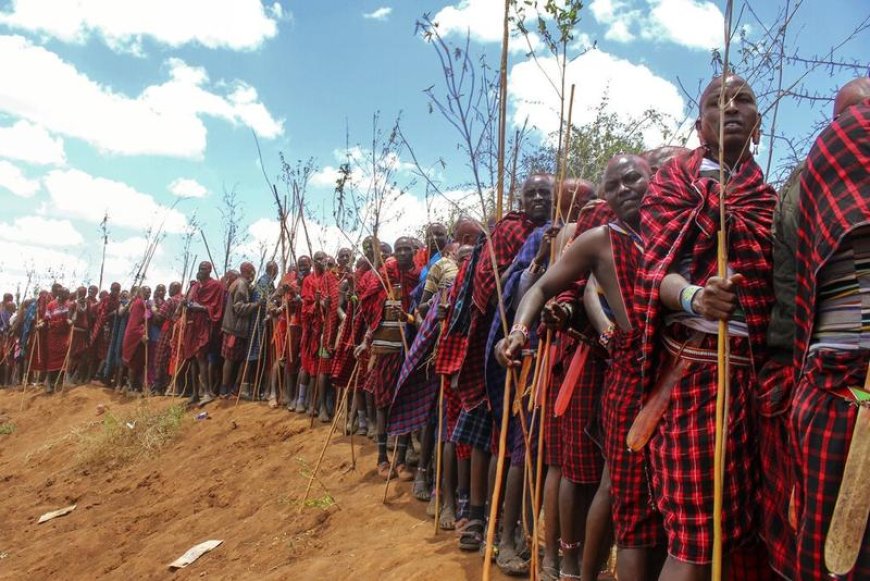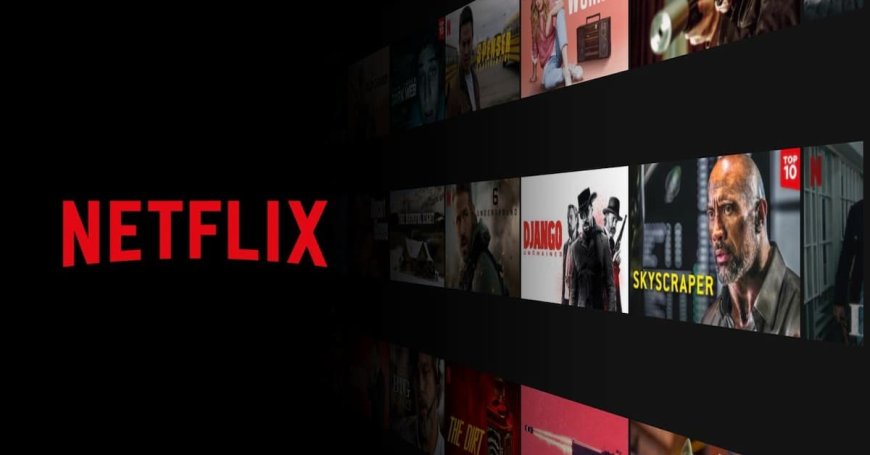Netflix and Meta are among several companies that may lose access to high-value carbon credits they had hoped to use to strengthen their environmental reputations, following a legal dispute between conservation groups and Maasai herders they claimed to support.
Meta is the parent company that manages the world's social media giants such as Facebook, Instagram and WhatsApp.
The Northern Kenya Rangelands Carbon Project—touted as the world’s largest soil-based carbon initiative—was launched in 2012 to conserve approximately 4.7 million acres of communal grasslands owned by the Maasai, Borana, and other pastoralist communities.
These lands are part of a critical conservation network home to endangered species like cheetahs, black rhinos, and Rothschild’s giraffes.

Photo of a group of Maasai morans. /CHINA DAILY
This week, Verra, the international organisation responsible for certifying carbon credits, suspended the project’s accreditation amid growing scrutiny over whether such initiatives genuinely benefit local populations, as reported by The Wall Street Journal.
The suspension follows a longstanding conflict between the conservationists managing the project and local herders, who claim it interferes with traditional grazing systems developed over generations.
The situation escalated earlier this year when a Kenyan court ruled in favour of the herders, stating that conservationists lacked the authority to represent them. The project, designed by American soil scientist Mark Ritchie and managed by the Kenyan nonprofit Northern Rangelands Trust, requires pastoralists to rotate livestock grazing to allow vegetation to regenerate and store more carbon in the soil.
Hassan Bidhu, a plaintiff in the lawsuit challenging the project, stated that the carbon-related restrictions were the tipping point in a series of escalating limitations on how his community could use their land.
“The project completely destroyed the traditional system and brought another one, which is like a displacement,” said the 33-year-old, who was so desperate during Kenya’s drought in 2022 that he fed his last two calves store-bought milk.
He believes more of his livestock could have survived if not for the grazing restrictions imposed by the carbon-credit project, which, he claims, prevented access to traditional dry-season pastures. Project developers assert the initiative could sequester up to 50 million tons of carbon over the next three decades, roughly equivalent to offsetting emissions from millions of trans-Atlantic flights.
The project was designed to serve multiple goals: major corporations gained carbon credits to offset their emissions and boost their green image, pastoralist communities received a portion of the revenue, and overgrazed grasslands were given a chance to recover, enhancing carbon storage and wildlife habitats.
While some herder groups have supported the initiative, others have strongly opposed it. Rights groups, including the UK-based Survival International, argue that local communities were not adequately consulted before the project was launched. Critics say it disrupted long-established seasonal migration routes that align with rainfall and pasture cycles.
However, the Northern Rangelands Trust and the project’s developers maintain that grazing plans are implemented by community leaders and that participation remains voluntary.
The conflict came to a head in 2021 when 165 pastoralists from two conservation zones filed a lawsuit against the Northern Rangelands Trust in a Kenyan court, accusing the organisation of using their land without proper consent.
The herders claimed the conservancies—set up to represent them in the carbon credit deal—were established through coercion and intimidation, not genuine, informed agreement. The court ruled in favour of the pastoralists.
Lawyers and human rights advocates representing the herders say the decision affects one of the project’s largest conservancies, potentially invalidating about 20 percent of the carbon credits tied to the entire initiative. They warn that similar legal challenges could threaten credits in roughly half of the 14 conservancies involved.
This raises the risk that major corporations could be left with discredited offsets and face criticism for exaggerating their environmental commitments.
Carbon credits are permits that allow individuals, companies, or governments to emit a specific amount of carbon dioxide or other greenhouse gases, typically measured as one metric ton of CO₂ equivalent per credit.
They are a key component of carbon offset systems, where entities can "offset" their emissions by purchasing credits tied to projects that reduce, remove, or prevent greenhouse gas emissions elsewhere, such as reforestation, renewable energy, or soil carbon storage initiatives.

Visual representation of carbon credits. /SERRAI GROUP









